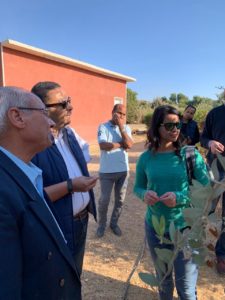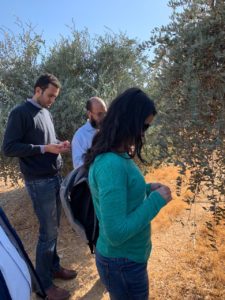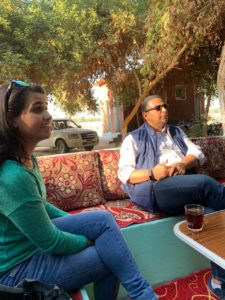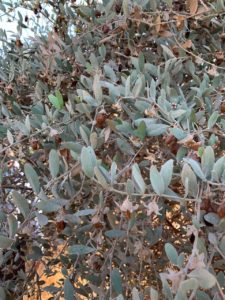Partners gather with SIDA to highlight the ReWater MENA project’s breakthroughs
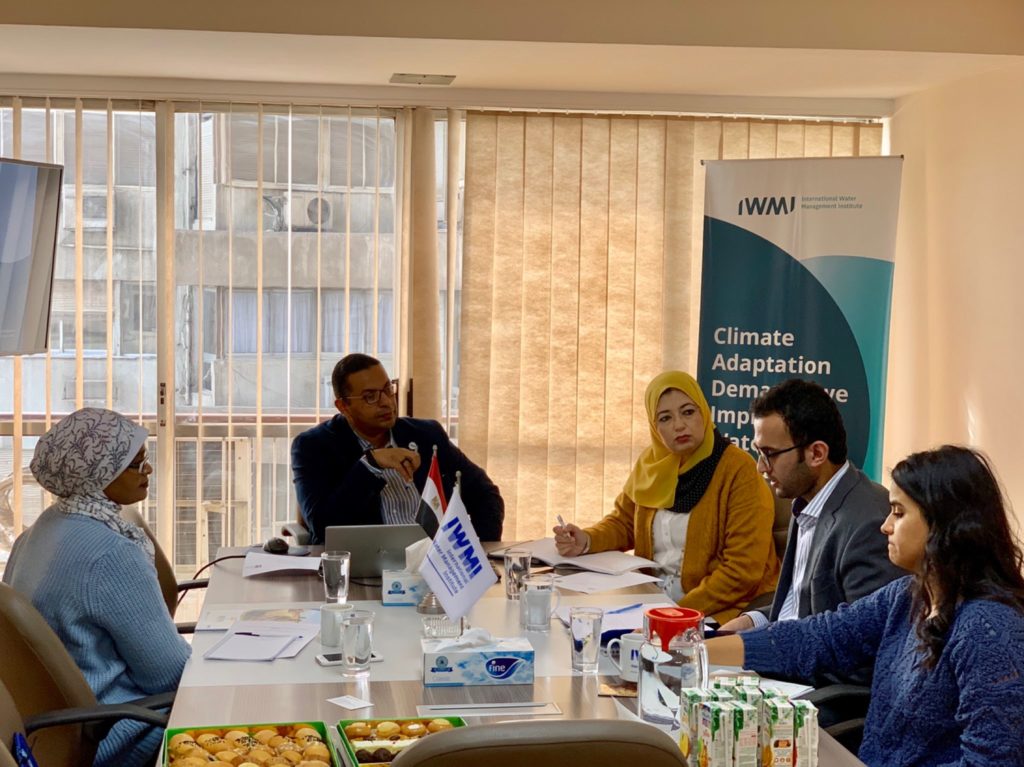
Amira Hosny, IWMI Communication Consultant, ReWater MENA
IWMI’s MENA office organized and hosted a fruitful meeting in Cairo on the 10th of December 2019. The ReWater MENA project’s partners’ remarkable gathering was attended by 10 distinct representatives, comprising 3 of which were delegates of the project’s donor; the Swedish International Development Cooperation Agency (SIDA). The representatives from SIDA included Ms.Amira Khalil, the regional development Liaison officer from the Sweden Embassy in Cairo, Ms. Yosra Bakkar and Mr.Hamzeh Bany Yasin the regional programme manager from the Sweden Embassy in Amman.
The gathering’s objectives encompassed providing support for a smooth handover to the new regional program manager for SIDA at Amman in Jordan instead of Stockholm in Sweden, clearly delivering an up to date progress on the ReWater MENA project and its status to SIDA’s representatives, introducing the project’s partners based in Egypt to SIDA and allowing every partner to convey the evolution accomplished on the project so far, and finally visiting one of the project’s selected sites in Luxor for SIDA representatives to experience it firsthand.
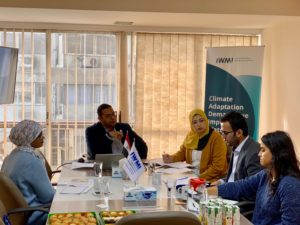
Dr. Amgad Elmahdi, Head of International Water Management Institute (IWMI) MENA region, and Dr. Gihan Bayoumi, Regional Project Manager of ReWater MENA in IWMI, facilitated and led the meeting that pinpointed the project major outputs, progress, risks, partners’ milestones and challenges faced.
Discussions embarked with The International Center for Agricultural Research in the Dry Areas (ICARDA) representative talk that tackled the progress of the activities and achievements such as; the completion of the project’s sites’ characterization (Luxor & Kafr El-Sheikh) and the compilation of comprehensive analysis for a wide spectrum of stakeholders. This was done through conducting in-depth focus groups discussions with diverse stakeholder groups including the farmers as stated by Dr. Bezaiet Dessalegn the senior researcher at ICARDA. ICARDA’s dialogue consequently unfolded the challenge of limited access to information and hence having already published or secondary data only.
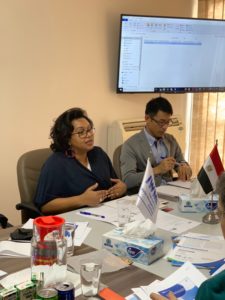
This led to the Centre for Environment and Development for the Arab Region and Europe’s (CEDARE) regional Director, Dr. Khaled Abuzeid’s, talk about implementing previously set plans to cooperate with ICARDA to define and fill any existing knowledge gap. Dr. Abuzeid also highlighted CEDARE’s successful arrangement of Egypt’s First National Alliance meeting that took place on the 20th of May 2019 and its established communication platforms that help promote ReWater project through their dedicated Facebook page (https://www.facebook.com/ReWaterEgypt/ ) created for it and ReWater’s page on CEDARE’s website to share relative updates. He invited the meeting participants to the second steering committee meeting which will be held on the 18th of December 2019 in CEDARE premises to discuss the progress and future plans.
Following ICARDA’s and CEDARE’s presentations of progress was the Arab Water Council’s (AWC) presentation by Dr.Tarek Tawfiq which revealed the partner’s plans to organize the science-policy dialogues throughout the project. The first dialogue is to be co-convened by both the AWC and IWMI, while the second dialogue will be organized by the AWC, the Food and Agriculture Organization of the United Nations (FAO) and IWMI.
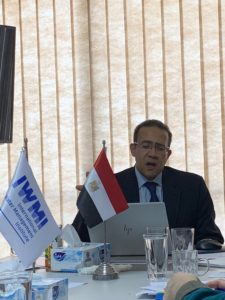
Last but not least, was the FAO’s presentation by Mr. Jiro Ariyama. Mr. Ariyama unraveled the great potential FAO is willing to unleash in cooperation with IWMI in order to develop the source book and facilitate a meeting between ReWater stakeholders and MADFORWATER stakeholders to enhance the exchange of knowledge and experiences. FAO also proposed providing support to develop a water accounting framework, working on water productivity assessment and improvement, and applying nexus analysis through the bridging and collaboration among ReWater project and the SIDA-funded project FAO is currently executing.
The gathering was wrapped up by Ms.Yousra Bakar’s concluding comment on how glad Sida is for the opportunity of such round table gatherings due to its importance for all project stakeholders.
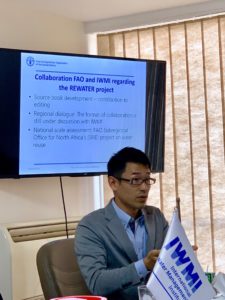
After the meeting was concluded at the IWMI MENA office in Cairo, Dr.Amgad and Dr.Gihan led Mr.Hamzeh and Ms.Yousra from SIDA to Luxor’s field visit to arrive on the same day. During the following day, the group was joined by three representatives from the Holding Company for water and waste water in Luxor (HCWW) including; General Mohamed Yehia, the Head of the company for water and waste water, Engineer Awwad and Engineer Mohamed to the wastewater treatment plant and the forest associated to it.
During this tour the Luxor team gave an overview on the treatment plant capacity, treatment technologies, and location. In the location, the trees are watered using a furrow and drip irrigation system with 50,000 cubic meters of treated wastewater per day from an oxidation pond that serves Luxor city and few surrounding villages. Covering 1,900 Feddan (800 hectares), the forest was planted in 2005-2008 by a project of the US Agency for International Development (USAID). The trees withstand salinity levels that reach 3,000 parts per million.
Species planted in the forest include
· Jojoba trees,
· Jatropha trees,
· Sweet sorghum,
· Kaya trees,
· Eucalyptus trees and
· Gazorina trees
The project team afterwards discussed the need for developing a feasibility study for the sites. This discussion was finally concluded by highlighting the importance of ReWater MENA project intervention.
